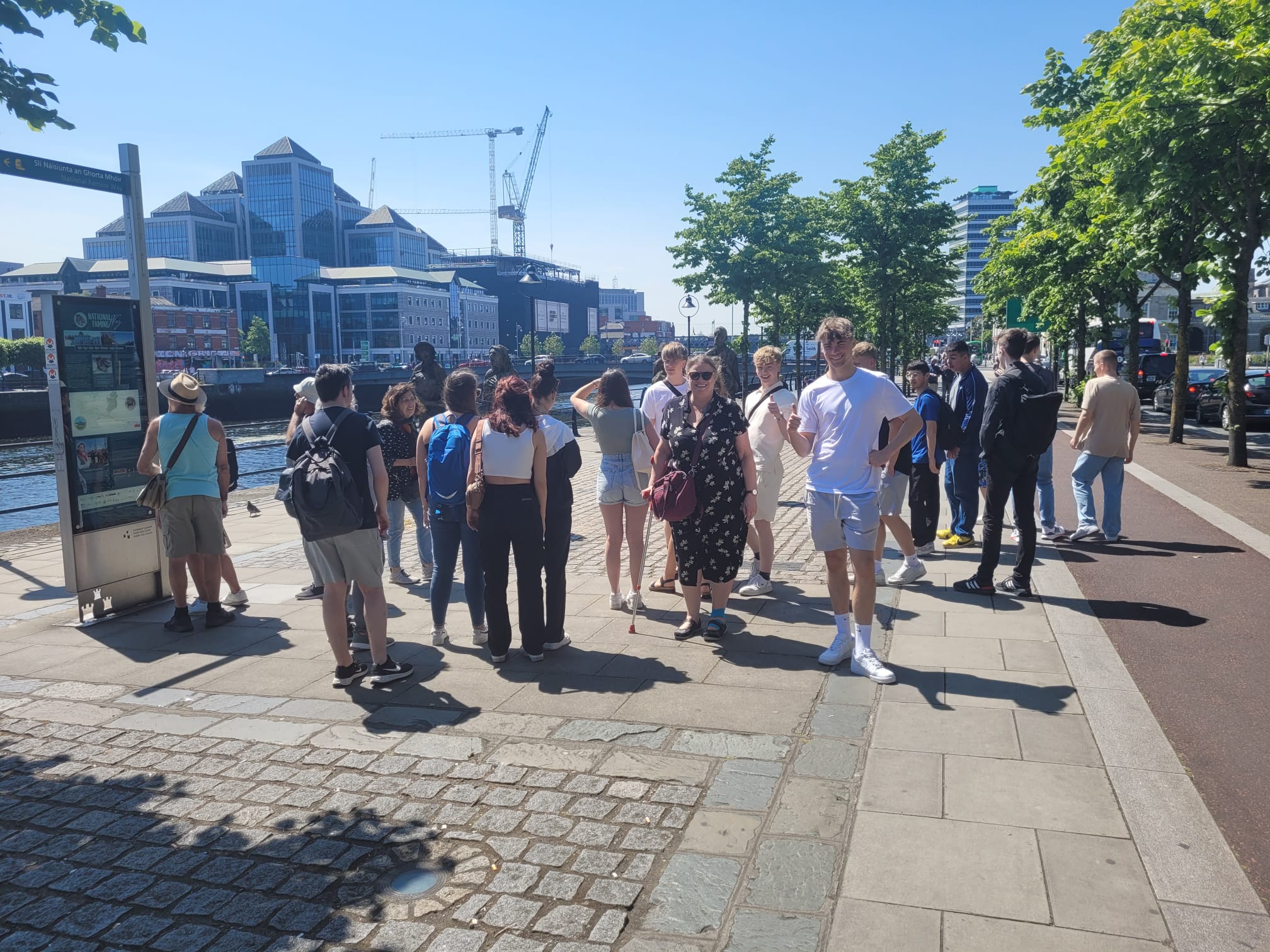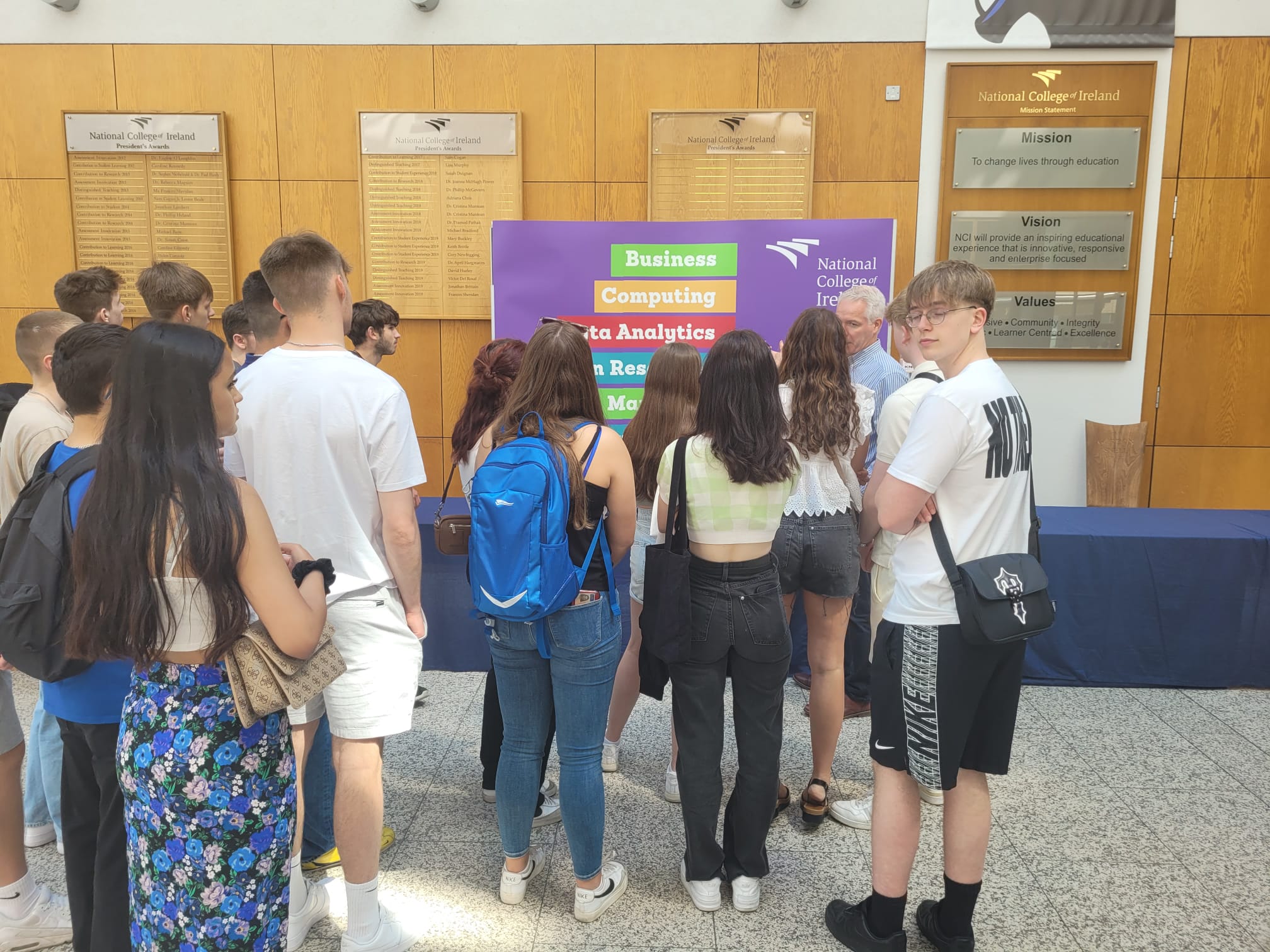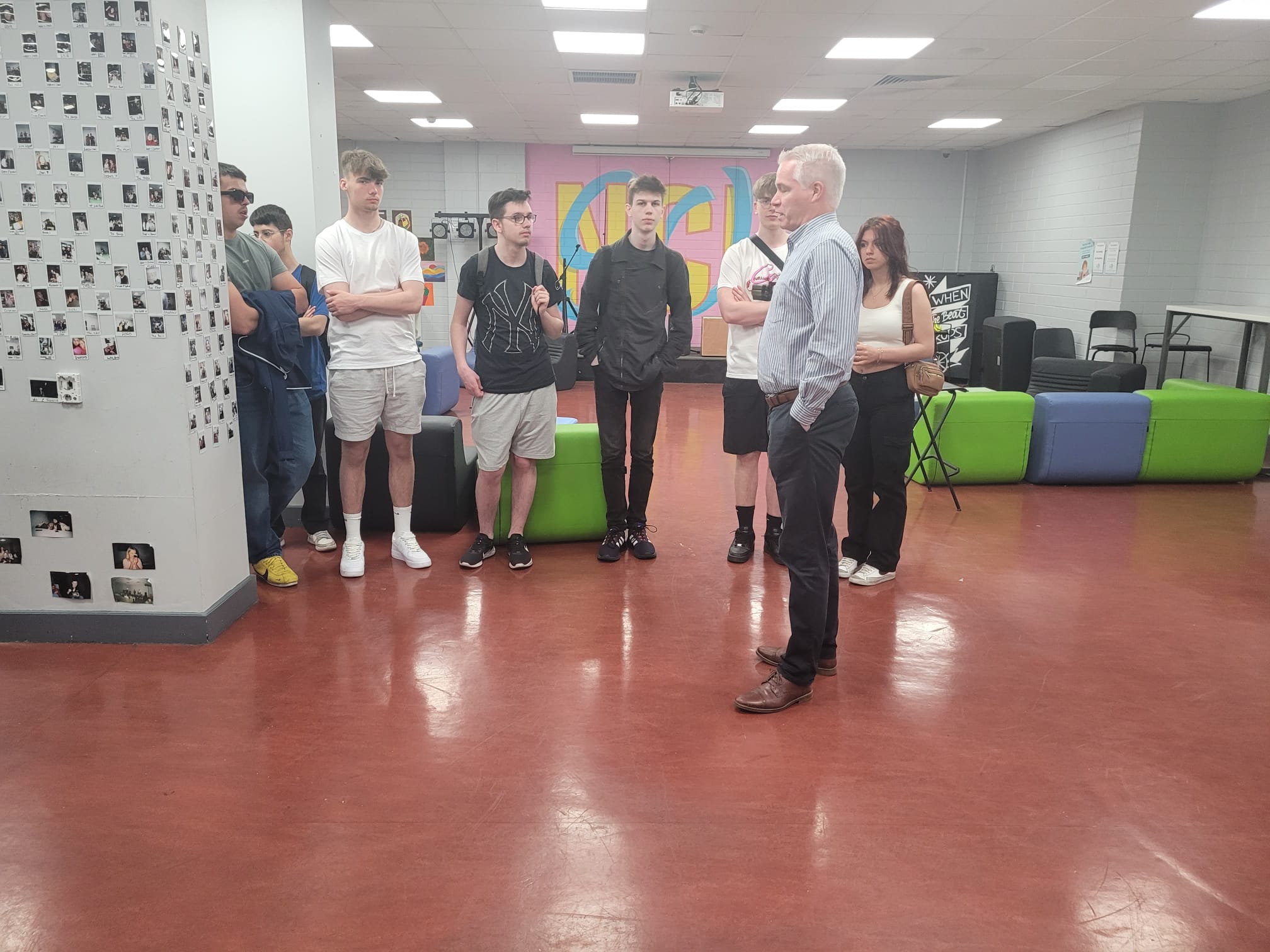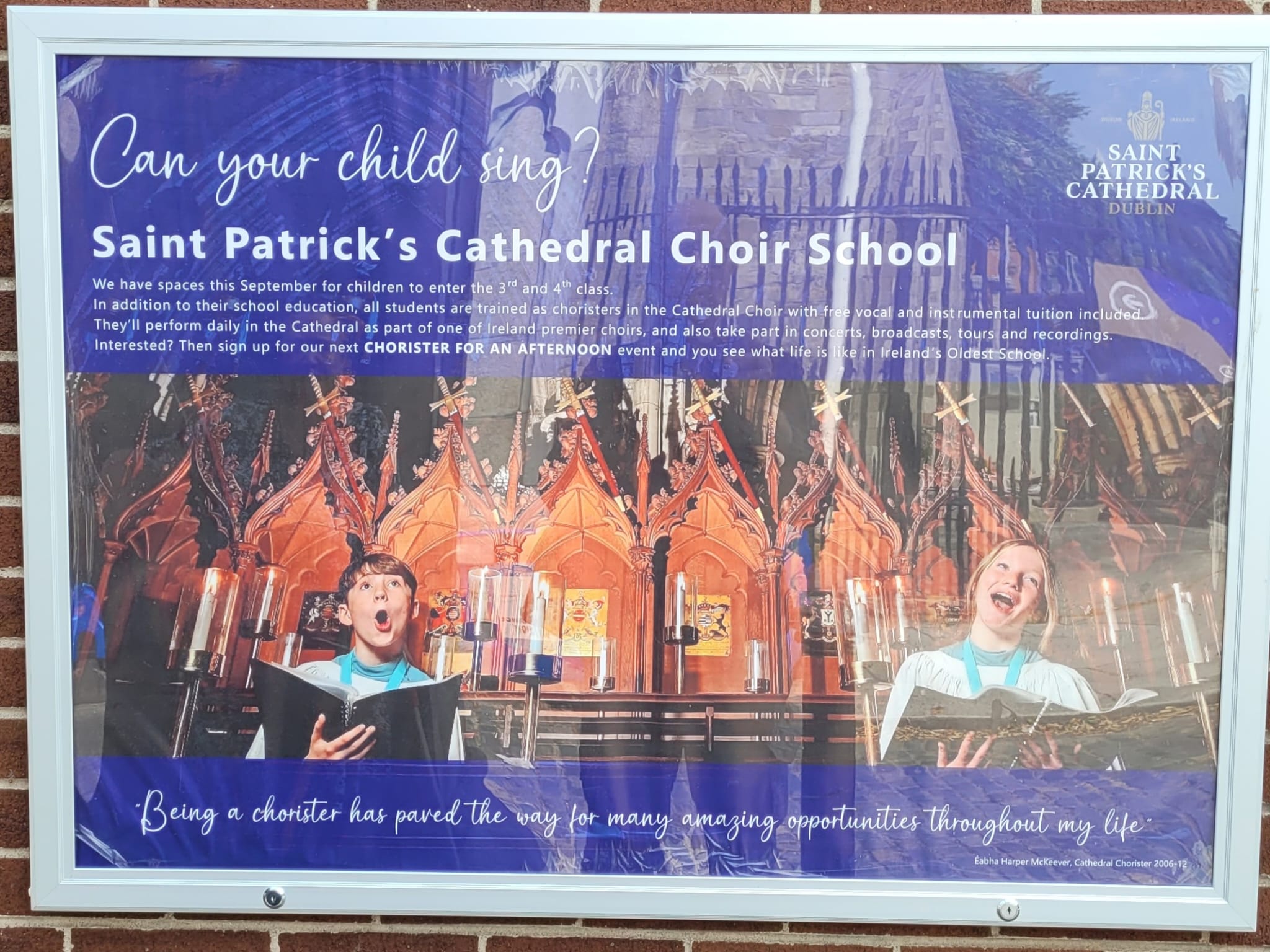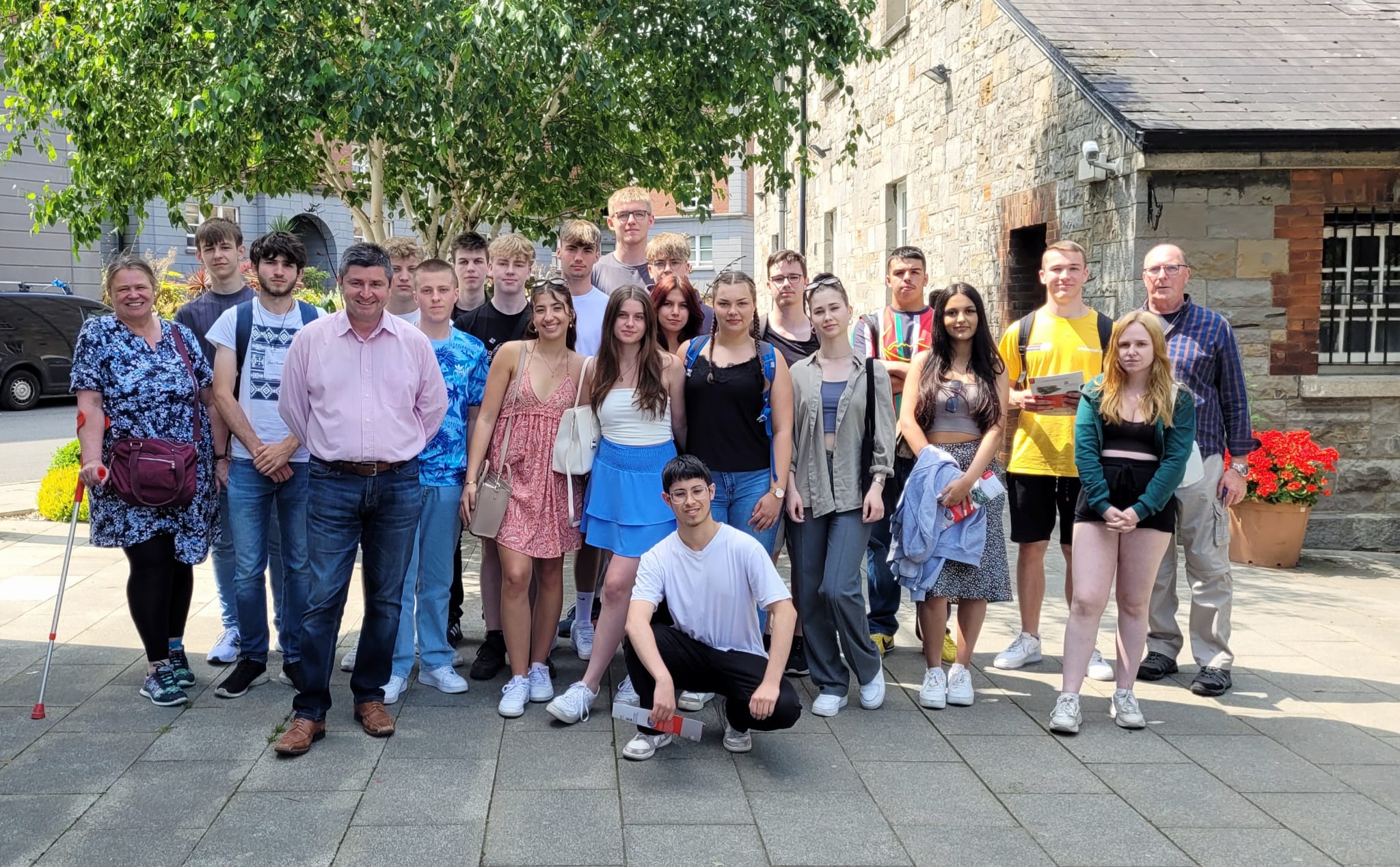
Ireland Project Trip to Dublin from 13.06. - 17.06.2023
LK 2Eng2a
After an eventful journey by train, plane, bus and finally a 2.8 km walk in sunshine and 27 degrees in the shade, we arrived at Destiny Student New Mill, our accommodation in The Liberties district in the Irish capital Dublin.
On Wednesday, 14 June 2023, we went straight to the National College of Ireland, NCI, where we were first given a guided tour of the campus to gain an insight into the structure of an Irish college and the basic study options in Ireland and in particular at the NCI. Afterwards, the vice-principal of the college personally gave a lecture on the importance of the Irish Celtic Language, in which NCI students also took part. The morning was rounded off by a round of communication and games between our students and the college students, who came from different countries. Our visit ended with a round of fresh delicious pizza donated by the college and lively conversations. Following on from the historical and cultural information on Ireland in the NCI, we, the teaching staff together with our students, went on a walk through north Dublin to visit memorials of the Great Famine and the uprisings that eventually led to the establishment of the Republic of Ireland.
On Thursday 15/06/2013 we went to our second partner college, Griffith College Dublin. While the NCI focuses on business and computer technology, here we were introduced to the world of music and medical design. Here, too, we came into contact with an Irish student who, among other things, informed us about the accommodation options, campus life and career opportunities in Dublin and Europe. The day was rounded off with impressions of St. Patrick's Cathedral and the role of the Catholic and Anglican Church in Ireland, yesterday and today.
On Friday, 16.06.23, small groups had the opportunity to visit the National Museum of Ireland, the National Gallery and Christchurch Cathedral. The day ended with a dinner organised by the students. Many thanks for that!!!!!
After a 12-hour return journey, we finally arrived in Bremerhaven around 9.30 pm, tired but in good spirits and still full of impressions of the vibrant, hospitable and impressive city on the River Liffey.
The trip was prepared in class, among other things the students prepared interviews for the college visits, which were used at the college events. We are expecting the return visit from the Irish side in January.
Of course, all students at our school should have the opportunity to eventually study at one of the two colleges. I am the contact person for this, Heidrun Pargmann. In addition, information events with the Irish professors and possibly students are planned for all students at our school in January.
Conclusion of the project trip after feedback discussions in the LK: Impressive impressions, interesting possibilities after the Abitur or the Fachhochschulreife, a friendly country full of music and mystical culture, a touching hospitality by the directors of the colleges, to whom our personal thanks go. At this point, we would also like to mention the excellent social behaviour and the willingness of the entire English class to actively participate in the trip. At this point, we would also like to thank Gaby Basse for her friendly and helpful support during the entire trip.
On behalf of all participants, we leave with some ideas for the continuation of the college partnerships and the cooperation with our neighbouring school, the BST Bremerhaven.
Authors: Heidrun and Kurt Pargmann

